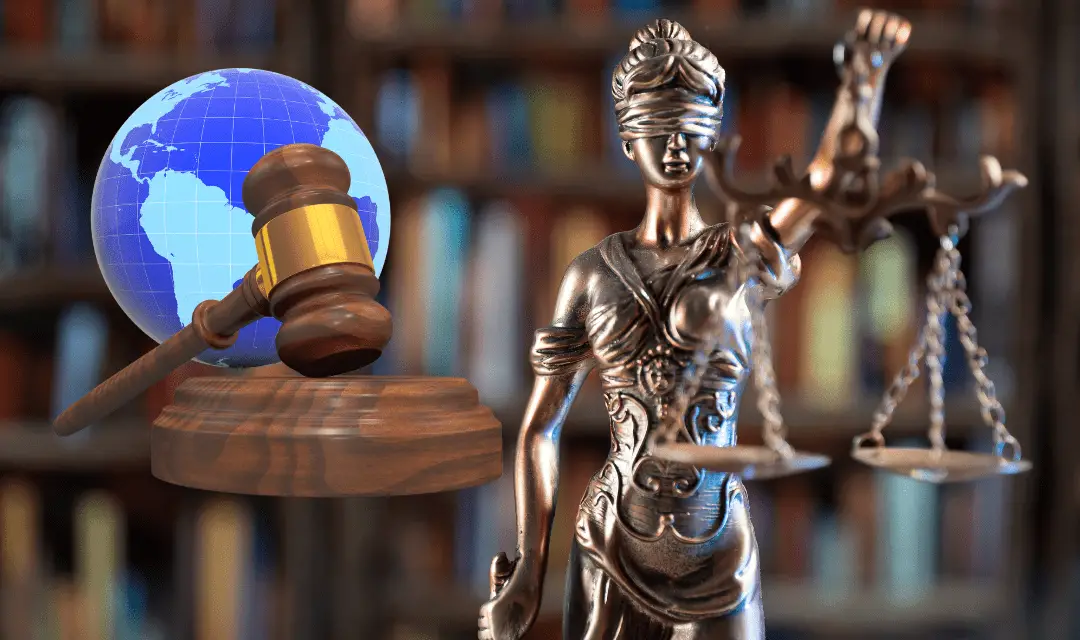In this article, we shall discuss why sovereign immunity may be the virtual vaccine of a State. At the dusk of the year 2019 rumors of unknown disease making Chinese citizens sick. Videos of patients lying on road devoid of consciousness and scenes as if a contagion has spread flooded the social media.
Netizens raised concern however the Chinese government stayed silent. It was only in the early months of 2020 that it was described as a novel corona virus. Fear and worry flooded every nation, lockdowns, quarantines, and isolation were put into place. The world halted as if we were stuck in time.
Streets were empty, freeways are carless, the wild animals come out of their natural habitat as if asking where did the people go? It must have been beneficial to some for they had time to stay with their families but for those who have no savings, hunger and worry flood them in.
The economy must have been halted but the world of science and research is in its all-time rise. Every capable nation is looking for the key to our freedom, IMMUNITY. This immunity, if achieved by the majority, will bring us the movement and freedom we do so miss before the start of pandemic.
The State, in order to deliver its responsibility, must be free and not be hindered by the things which impairs its duties. Just like how Covid-19 impaired our well-endowed freedom. However, unlike biological humans, the State is a political figure which prevents the same to receive the vaccine we humans are receiving. That is not the case actually. Vaccines is to humans; the Constitution is to the State.
Enshrined in the Sec. 3, Art. XVI of the 1987 Constitution is the immunity of the state from suits. More explicitly it states that “State may not be sued without its consent”.1 This constitutional provision is the vaccine which provides the state its immunity, immunity from being sued which would then be the cause of delay in the administration of the State’s functions. This is called the Doctrine of State Immunity.
The immunity the human vaccine’s produce and the immunity the Constitution provide for the State are both not absolute. We will delve further when and how such immunity from suit is availed by the State.
Sovereign Immunity
A ruling government entity has the option of choosing immunity from civil litigation or criminal punishment under the legal notion of sovereign immunity. This means that no one is permitted to sue the government without the administration’s permission.2
The King was protected from accusations of misconduct by this principle that was carried over from British common law. State governments are not immune from lawsuits filed against them by other states or by the federal government, despite the fact that sovereign immunity is claimed to shield the government from having to change its policies whenever someone objects to them.3
Is the State the real party in the case filed?
It is often that the claims are filed not against the state itself but against the officers of the government which is responsible for the demand. However, it cannot be denied that even if the officer was the one impleaded it is still the State that is the real party in interest.
To test whether the State is the actual party being impleaded we may look in the case of Sanders vs. Veridiano4 wherein the petitioners filed for certiorari questioning the validity of the decision demanding them to pay for damages. The court ruled that if the enforcement of the decision rendered against the public officer or agency impleaded will require an AFFIRMATIVE ACT from the State, then, it is a suit against the State.5
Another test to determine if said suit is against the State, regardless of who is being impleaded, if it produces adverse consequences on public treasury, or if there is a loss in the property of the State and not on the personal capacity of the impleaded then it is a suit against the State.6
Who may be covered by the doctrine of state immunity?
The doctrine of state immunity covers the Philippine Government, Local Government Units, Incorporated and Unincorporated Government Agency, and a Foreign State. The doctrine of sovereign immunity from suit may be invoked by any foreign state when it is sued in the country just as the Philippines may invoke sovereign immunity from suit filed in a foreign country, and except when it waives it, the suit will fail.7
Why is a foreign state included in the Doctrine of State Immunity?
In international laws we have the latin legal maxim Par in parem non habet imperium which when translated means “equals have no sovereignty over equals”. This is a fundamental doctrine in international laws and is universally accepted.8
This doctrine is best seen in the case of Holy See vs. Rosario wherein the Vatican or the Holy See was impleaded thru the Papal Nuncio for specific performance and damages before the Regional Trial Court. The Papal Nuncio moved for dismissal by reason of lack of jurisdiction by reason of sovereign immunity from suit.9
The Court ruled that the action of the Holy See in acquiring and later selling the subject lot is a sovereign act and the private respondent failed to prove the contrary. The legal remedy for the Private Respondent to such claims is by informing the Foreign Office of the Philippines which will determine its merits.10
Is the Doctrine of State Immunity immutable and does the Public Officer enjoy it all the time?
The doctrine of state immunity is not the shield of Aegis mentioned in the legends that defends it from any attacks. The said shield is put down when the State itself consents to be sued.
In situations, the Public Officers acting in behalf and for the state may also be sued in situations such as to restrain a public official from doing something that is prohibited by law (Petition for Prohibition):
- to compel a public official to do some lawful act/required (Petition for Mandamus);
- to compel payment for damages from an already appropriated fund; and
- to secure payment but the payment would come from the public officer and not from the government.
When can the State be sued?
The exception to the general rule that the State cannot be sued is when the State itself permits and consents the suit. Said consent may be expressed wherein a law provides for the procedure of such suit and implied by the act initiated by the State.
Expressed consent may be manifested by virtue of a general law or a special law.
General laws such as the Act No. 3083 wherein it states that:
“the Government of the Philippine Islands hereby consents and submits to be sued upon any moneyed claim involving liability arising from contract, expressed or implied, which could serve as a basis of civil action between private parties”
Similarly, the Commonwealth Act No. 327 as amended by Presidential Decree No. 1445, wherein it states that a claim against the government must first be filed before the Commission on Audit and that it must act upon it within sixty (60) days. Rejection of such claim will allow and authorize the claimant to elevate the concerns before the Supreme Court on certiorari and this in effect will be a suit against the State with its consent.
The application of the above stated law is shown in the case of Lockheed vs. University of the Philippines (UP)11 wherein Lockheed was given an award by the Labor Arbiter for the unpaid wages due from UP. By virtue of Notice of Garnishment issued to Philippine National Bank (PNB) UP Diliman the award was received by Lockheed.12
The Supreme Court ruled that UP is a juridical person and therefor can sue and be sued. However, in order to claim the award, Lockheed must have filed a claim before the COA being it is the proper procedure under the Commonwealth Act No. 327 as amended by Presidential Decree No. 1445.13
Expressed consent by special law pertains to situations wherein the law specifies who may file a case against the state. This kind of expressed consent is best shown in the case of Merritt vs. Gov. of the Phil. Islands.14
Merritt, while driving his motorcycle, was bumped by a government ambulance which incurs him severe injury beyond rehabilitation preventing him to return to his profession resulting for him to not earn what he used to receive. The legislature enacted Act No. 2457 which authorizes Merritt to bring suit against the government.15
Expressed consent must be embodied in a statute
It shall also be noted that the expressed consent of the State to be sued needs a statute which embodies it. It can never be given by a mere counsel of the government. This case happened in the case of Republic vs. Purisima,16 wherein Solicitor General Mendoza questioned the decision of Judge Purisima acknowledging the contract made between Rice and Corn Administration and Yellow Ball Freight Lines, Inc. as a waiver of the non-suability of the State.
The Supreme Court ruled that whatever the agreement the counsel of Rice and Corn Administration has entered into will not deem as a waiver of the doctrine of non-suability. Waiver of such should always been embodied in a statute.
Just compensation and Doctrine of State Immunity
In the case of Minesterio vs. CFI of Cebu,17 the government took away a property without the legal process of expropriation or negotiation of sale. The Supreme Court ruled that the aggrieved party may institute a suit against the government without violating the Doctrine of State Immunity. The Supreme Court stated that:
“… If the constitutional mandate that the owner be compensated for property taken for public use were to be respected, as it should, then a suit of this character should not be summarily dismissed.18
“The doctrine of governmental immunity from suit cannot serve as an instrument for perpetrating an injustice on a citizen.19
“Had the government followed the procedure indicated by the governing law at the time, a complaint would have been filed by it, and only upon payment of the compensation fixed by the judgment, or after tender to the party entitled to such payment of the amount fixed, may it “have the right to enter in and upon the land so condemned, to appropriate the same to the public use defined in the judgment.” If there were an observance of procedural regularity, petitioners would not be in the sad plaint they are now.20
“It is unthinkable then that precisely because there was a failure to abide by what the law requires, the government would stand to benefit. It is just as important, if not more so, that there be fidelity to legal norms on the part of officialdom if the rule of law were to be maintained.21
“It is not too much to say that when the government takes any property for public use, which is conditioned upon the payment of just compensation, to be judicially ascertained, it makes manifest that it submits to the jurisdiction of a court. There is no thought then that the doctrine of immunity from suit could still be appropriately invoked.”22
Implied Consent
In Implied Consent of the State to be sued, there is no needed to be written in any law but the act was initiated by the State itself. The following are situation wherein the State impliedly consented the suit against itself:
- When the State commences litigation, it becomes vulnerable to counterclaim.23 The exception to this case was when the State intervenes for the purpose of resisting the claim exactly because of the immunity from suit and not in asking for any affirmative relief.24
- When the State enters into a contract of business for proprietary capacity. The State enters in contracts in the following capacities: Acta jure gestionis or the act which is proprietary in nature and Acta jure imperii or the act which is an exercise of its sovereign power and functions. Only in contracts entered in Acta jure gestionis may be considered as implied consent and as such the state may be sued.
- When the claim of State for immunity would result to inequitable or unjust circumstances. This include the previously mentioned just compensation if a private property was taken without proper procedure of expropriation.
- By virtue of quantum meruit. If the State is unjustly enriched by the services rendered or work done by the claimant, the State denying to pay is an injustice to the claimant.
May Government Agencies be sued?
Government agencies may be classified as incorporated or unincorporated. Incorporated government agencies have a charter of its own which creates its own separate juridical personality. Among the incorporated government agencies are Social Security System and the University of the Philippines.
In order to test whether they can be sued or not lies on what is indicated in their charter. Local Government Units are among the government agencies which has governmental functions and therefor are entitled to enjoy the immunity from suit.
However, if their charter says so that they can sue or be sued then therefore they are. The simple rule is that when the charter says that they are suable, regardless if they are performing governmental functions, they will be suable.
On the other hand, unincorporated government agencies are attached to the national government and therefore not separate. Contrary to incorporated ones, being that charter is not present, unincorporated government agencies are tested by their actions.
If in acta jure gestionis or in proprietary capacity, they are suable, but if in acta jure imperii, or in the exercise of their governmental function, they are not suable.
Difference of Suability from Liability
The consent of the state, whether expressly or impliedly does not merit that the State acknowledges its liability. In the case of Merritt vs. Govt. of the Phil. Islands,25 the State consented the institution of suit however the Court ruled that the ambulance driver not being a special agent of the government and acting unprofessionally does not incur liability on the part of the State. This goes to show that the State may be suable but may later be found not liable.
The liability of the State, if proven that there is, is not as easy to be executed. In the case of Republic vs. Villasor,26 it states that:
“The universal rule that where the State gives its consent to be sued by private parties either by general or special law, it may limit claimant’s action ‘only up to the completion of proceedings anterior to the stage of execution’ and that the power of the Court ends when the judgment is rendered, since government funds and properties may not be seized under writs of execution or garnishment to satisfy such judgments, is based on obvious considerations of public policy. Disbursements of public funds must be covered by the corresponding appropriation as required by law. The functions and public services rendered by the State cannot be allowed to be paralyzed or disrupted by the diversion of public funds from their legitimate and specific objects, as appropriated by law.”27
Assent to be sued does not imply consent to judgment execution against it. Such execution will necessitate another waiver since the court’s power ceases after the judgment is given, because government monies and possessions may not be taken under writs of execution or garnishment unless such distribution is supported by the requisite appropriation.
Conclusion
The Doctrine of State Immunity emanates from the sovereignty of the State. The State is the authority that makes law on which a right may depend and a suit against the authority may lack practicality.
It is also based on the idea that when the State is barraged by suits, the proper administration of the government and public service will be hindered which could result to the endangerment of the public as a whole.
It may be a strong shield towards unnecessary and disturbing suits but the law does not exempt the State so much so that it will result to injustice and unfairness on the part of the complainant. The abovementioned cases proves that there are limits to when this shield is withdrawn and the State took a blow in honor and pursuit of justice.
- Sec. 3, Art. XVI of the 1987 Constitution[↩]
- What is Sovereign Immunity?[↩]
- Id.[↩]
- G.R. No. L-46930, June 10, 1988[↩]
- Id.[↩]
- Begosa vs. Chairman, PH Veterans, G.R. No. L-25916, April 30, 1970[↩]
- The Holy See vs. Rosario Jr., 228 SCRA 524 [1994][↩]
- Id.[↩]
- Id.[↩]
- Id.[↩]
- G.R. No. 185918, April 18, 2012[↩]
- Id.[↩]
- Id.[↩]
- G.R. No. L-11154, March 21, 1916[↩]
- Id.[↩]
- G.R. No. L-36084, August 31, 1977[↩]
- G.R. No. L-31635, August 31, 1971[↩]
- Ibid.[↩]
- Ibid.[↩]
- Ibid.[↩]
- Ibid.[↩]
- Ibid.[↩]
- Froilan vs. Pan Oriental Shipping, G.R. No. L-6060, September 30, 1954[↩]
- Lim vs. Brownell, G.R. No. L-8587, March 24, 1960[↩]
- Supra., G.R. No. L-11154, March 21, 1916[↩]
- G.R. No. L-30671 November 28, 1973[↩]
- Ibid.[↩]




